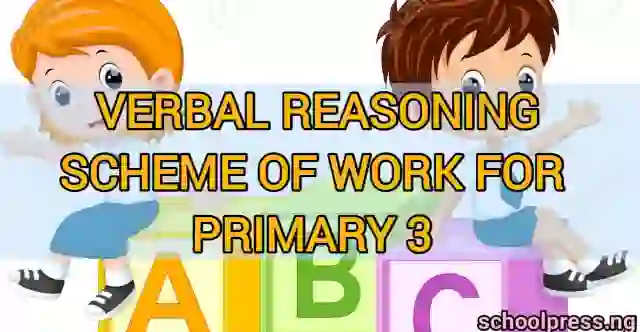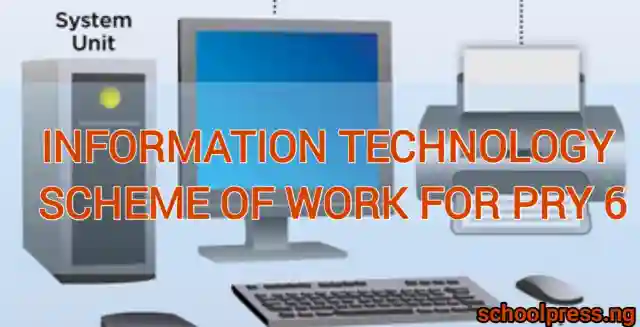Verbal reasoning is a critical life skill in children’s development to help them understand the world around them.
Therefore, being able to understand and manipulate language as a young child is also tied to cognitive development.
Therefore, the Verbal Reasoning Scheme of Work for Primary 3 ensures that pupils between 7 and 8 years can easily acquire the skill.
The Verbal Reasoning Scheme of Work for Primary 3 is divided into three terms, each with a different set of objectives.
The purpose of this scheme is to develop a child’s verbal reasoning skills widely, from word formation, sentence formation, picture formation, patterns, and analogies.
The first term of the Verbal Reasoning Scheme of Work for Primary 3 involves word formation. In this term, children are taught word formation to make new words by using prefixes and suffixes.
They are also introduced to word order and what it takes to form a sentence that makes sense. The mid-term holiday provides the children with ample time to revise and get ready for the impending examination.
In the second term, children in primary 3 have the following objectives in the Verbal Reasoning Scheme of Work: to learn similes and how to apply the skill in their writing, how to spell words and write the alphabet in reverse, to review the three aforementioned lessons and do a mock exam during the mid-term break.
The third term of the Verbal Reasoning Scheme of Work for Primary 3 is based on the alphabetical arrangement of words, words-per-word like synonyms and antonyms, as well as homophones and rhyming words.
The third term also teaches how to use a secret code and how to read a calendar. The two last weeks of the term involve revision and examination.
Table of Contents
First Term Verbal Reasoning Scheme of Work for Primary 3
| WEEK | |
| 1 | Revision |
| 2 | Word formation(I) |
| 3 | Word formation(II) |
| 4 | Word formation(III) |
| 5 | Word formation(IV) |
| 6 | Sentence arrangement |
| 7 | Mid-term Break |
| 8 | Pattern making |
| 9 | Grouping name |
| 10 | Mirror |
| 11 | Revision |
| 12/13 | Examination |
Check All Primary Schemes of Work Below
Second Term Verbal Reasoning Scheme of Work for Primary 3
| WEEK | |
| 1 | Revision |
| 2 | Simile |
| 3 | Simile |
| 4 | Spelling words |
| 5 | Reversed alphabet code |
| 6 | Reverse alphabet code(II) |
| 7 | Mid-term Break |
| 8 | Gender |
| 9 | Analogies |
| 10 | Prefix and suffix |
| 11 | Revision |
| 12/13 | Examination |
Check All Jss Scheme Of Work Bellow
Third Term Verbal Reasoning Scheme of Work for Primary 3
| WEEK | THIRDTERM |
| 1 | Revision |
| 2 | Alphabetical word arrangement |
| 3 | Wordpair (Synonyms and antonyms) |
| 4 | Continuation of Week3 |
| 5 | Homophones |
| 6 | Rhyming words |
| 7 | Mid-term Break |
| 8 | Secret code |
| 9 | Calendar |
| 10 | Revision |
| 11 | Revision |
| 12/13 | Examination |
Check All SSS Scheme Of Work Bellow
Conclusion
The Verbal Reasoning Scheme of Work is a must-have for Primary 3 to help them in gaining vital language and cognitive skills. The scheme includes practical activities for the children and assessments that help the children stay on track.
The acquired verbal skills at the end of the lesson will be instrumental in the children’s academic and personal lives.









